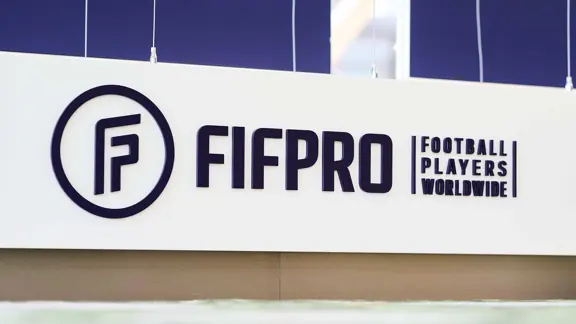News
Understanding Racism in European Football Culture

Our guests’ opinions do not necessarily reflect the position of FIFPRO
Football is popularly referred to as the “beautiful game.” This is often in recognition of the sport as a form of art. Much like art, football is sometimes seen as imitating life and society. The ugly reality of this imitation is often seen in the prevalence of racial discrimination both on and off the pitch. Despite efforts by stakeholders to address discrimination within football, racially charged behaviour persists.
Recent global events, movements, and developments in all spheres of life including football have been the impetus for further and deeper investigations into the role of race in the world. In light of this, a four-year research project has been commissioned in collaboration with FIFPRO, Fare, Erasmus University and UEFA. Chaired by Prof.dr. Jacco van Sterkenburg, this research project falls under the Chair on Race, Inclusion and Communication within the Erasmus School of History, Culture & Communication. This research project aims to link empirical research to racism and inclusion while keeping football and policy concerns at the forefront of its investigation.
Europe is a focal point of this investigation as it is widely acknowledged that the continent is the centre stage of football in the world. Europe’s head start in developing infrastructure, professionalising the sport, cultivating talent, and amassing global audiences has helped maintain its position as the cultural and financial hub of football. Although, football culture as a whole is composed of an international community, European football is in a unique position of influence in the industry and is thus an important institution to study, particularly when it concerns racial discrimination.
This revered position in the industry attracts fans and football players from diverse backgrounds across the globe, making it a significant social site where perceived differences can be celebrated or used as a divisive tool. An example of this can be seen in how the football environment can be both a place of awe-inspiring unity as well as a place where harm is inflicted or perpetuated through discrimination or prejudice.
While the language around race in football is evolving, literature has shown a reluctance within the football world to acknowledge racial discrimination as systemic or as a symptom of a wider issue in football culture. Under the guise of diverse football teams, the sport is often considered to be colourblind or meritocratic suggesting that the success of players and leaders in the industry is purely based on merit. Studies contradict these perceptions and illustrate how the professional development or mobility of non-White players and leaders is often undermined.
For example, the findings from the 2022 Governing Body Index Report, supported by the Fare Network, revealed that over 80 percent of football governing and senior roles in Europe were predominantly held by White men, whereas under 4 percent of these positions were held by both non-White men and women. These statistics provide measurements of the state of diversity in football leadership, but they provide very little insight as to what practices may be enabling these exclusionary mechanisms. Further, these numbers do not sufficiently explain how barriers, whether in recruitment procedures or organisational culture impact football players and leaders’ lived experiences in football spaces. This is the gap this research project aims to fill.
Considering the complex nature of racism and social inclusion in football, this study seeks to examine the roots and the role of race in various aspects of the football world. By investigating how race operates within football contexts, mechanisms of inclusion and exclusion can be identified. Mechanisms, as mentioned earlier, refer to systems, conditions, environments, or behaviour that enable or sustain exclusionary and inclusionary behaviour based on race and its intersections with gender, sexual orientation, religion, and other relevant dimensions.
In practice this research is trying to answer various questions including: why is there a difference between the diverse representation that can be observed on the football field and the racial and gender homogeneity in football leadership roles? What does racial discrimination in European football stadiums, clubs and social media platforms look like and why? How does racial discrimination impact different stakeholders, like football players? A central concern of the study is trying to understand what it is about football culture that makes it a conducive environment for racism to flourish in the way it does.
What research suggests when it comes to any culture is that behaviour – positive or negative – does not occur in a vacuum. In social environments, established patterns act as models of behaviour. Recognising that football culture involves an array of stakeholders, the research project explores issues of race in various areas of the football ecosystem. The project will be composed of sub-projects which will constitute focused studies based on the following themes which are representative of this football ecosystem:
- Players, coaches, referees, and fans’ lived experiences.
- Media, communication, and campaigning (online racism and anti-racism campaigns).
- The football industry (football leaders/governing structures).
- Grassroots football.
Understanding the role race plays in these different areas of the football ecosystem can provide insight that can potentially contribute to making football spaces safer for all stakeholders, particularly those from marginalised groups.
All those involved in the project recognise the complex nature of racism in football, however, the goal of the project is to produce knowledge that helps makes football more inclusive for all those who love the “beautiful game.” Maybe football like art, can resemble what society and life can be and not only what it already is.
Palesa Mashigo and Jacco van Sterkenburg
Palesa Mashigo is a news producer turned academic. She is currently working as a researcher and lecturer at Erasmus University's Media and Communication Department. She is a PhD candidate for a research project that explores race, racism and inclusion in professional European football. The project is a collaboration between Erasmus University, FARE Network, FIFPRO and UEFA. Palesa has a Master's in Media, Culture and Society, from Erasmus University. She received her Bachelor in Journalism (BJourn) from Rhodes University in South Africa where she specialised in television broadcasting. Prof. dr. Jacco van Sterkenburg is Endowed Professor ‘Race, Inclusion and Communication, specifically in relation to football and media’ at Erasmus University Rotterdam, the Netherlands. His Chair is supported by the main international football partners, Fare, UEFA and FIFPRO. He has published extensively on ‘race’, ethnicity, racism and other forms of discrimination in football, with a specific focus on mediated football and football coaching and leadership.

